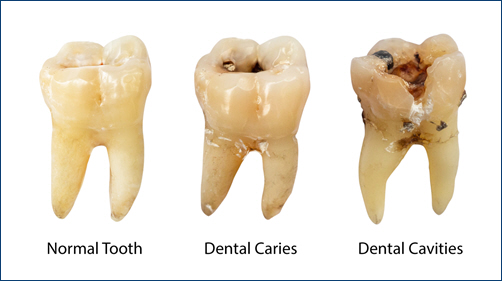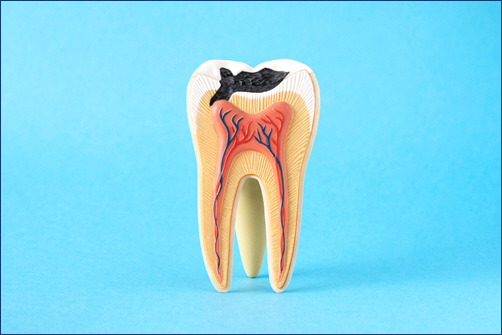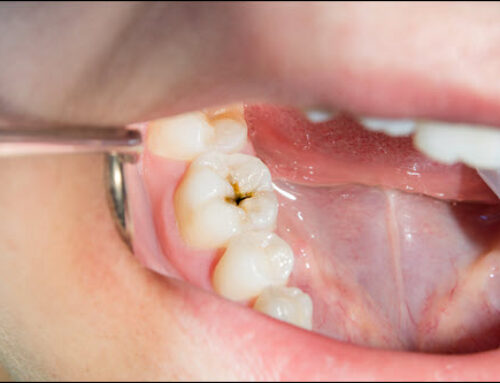Tooth decay is one of the most common dental problems affecting people of all ages. It occurs when bacteria in the mouth produce acids that erode the tooth enamel, leading to cavities. If left untreated, tooth decay can cause pain, infection, and even tooth loss. Understanding the causes of tooth decay and how to prevent it is essential for maintaining a healthy smile. Here are some tips on how to protect your teeth from cavities and maintain good oral health.
 Causes of Tooth Decay
Causes of Tooth Decay
- Plaque Formation: It begins with the formation of plaque, a sticky film of bacteria that constantly forms on your teeth. When you consume sugary or starchy foods, the bacteria in plaque produce acids that attack the enamel, the hard outer layer of your teeth. Over time, these acids can create holes in the enamel, leading to cavities.
- Diet and Lifestyle Factors: A diet high in sugar and carbohydrates can contribute to the development of cavities. Consuming sugary snacks and drinks frequently, especially between meals, provides a continuous supply of fuel for bacteria to produce acid. Additionally, habits such as smoking and poor oral hygiene can increase the risk of tooth decay.
Preventing Tooth Decay
- Good Oral Hygiene Practices: Brushing your teeth at least twice a day with fluoride toothpaste is essential for removing plaque and preventing cavities. Flossing daily helps remove food particles and plaque between teeth that a toothbrush cannot reach. Using an antimicrobial mouthwash can also help reduce bacteria in the mouth and provide additional protection against decay.
- Healthy Eating Habits: A balanced diet is crucial for maintaining healthy teeth. Limit your intake of sugary snacks and drinks, and opt for nutritious foods like fruits, vegetables, whole grains, and dairy products. These foods provide essential nutrients that strengthen your teeth and support overall oral health.
- Regular Dental Check-Ups: Visiting your dentist regularly for check-ups and cleanings is vital for preventing cavities. Professional cleanings remove tartar, a hardened form of plaque that cannot be removed by brushing alone. Regular check-ups also allow your dentist to identify early signs of decay and provide timely treatment to prevent cavities from worsening.
Treatment Options for Tooth Decay
- Dental Fillings: If a cavity is detected early, a dental filling can be used to restore the tooth. The dentist removes the decayed portion of the tooth and fills the space with a material such as composite resin, amalgam, or porcelain to restore its shape and function.
- Fluoride Treatments: Fluoride is a mineral that helps strengthen tooth enamel and prevent decay. Your dentist may recommend fluoride treatments or prescribe fluoride supplements to help protect your teeth, especially if you are at high risk of cavities.
- Dental Sealants: Dental sealants are thin protective coatings applied to the chewing surfaces of molars and premolars to prevent decay. Sealants create a barrier that keeps food and bacteria out of the grooves and crevices, reducing the risk of cavities.
Tooth decay is a preventable condition that can significantly impact your oral health if left untreated. By understanding the causes of tooth decay and implementing effective preventive measures, you can protect your teeth from cavities and maintain a healthy smile. Good oral hygiene, a balanced diet, and regular dental visits are essential for preventing decay and ensuring the longevity of your teeth. If you suspect you have a cavity or experience symptoms of tooth decay, consult your dentist promptly for a comprehensive evaluation and appropriate treatment.


